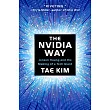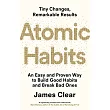In recent years, the ’knowledge economy’ has re-entered political discourse as a future-oriented, seductive and optimistic concept. It heralds knowledge and intellectual capability as unlimited and mobile resources of production that can be used for the prosperity of all. Knowledge economy has been linked with the promise of fairness, free from the traditional factors of production, with education as the only prerequisite. This interdisciplinary volume examines the career paths of university graduates, the role of higher education and the internal hierarchies shaping employment in the knowledge economy.
The promise of fairness and social inclusivity has not yet played out. Despite increasing numbers of degree holders, the advancements of AI and other technologies is now expected to bring a ’knowledge substitution’ rather than a human-centred knowledge economy. This book raises questions about the kind of jobs being made available, their social and political implications and how the main sociological themes of gender, class, education, ethnicity, age and location play a role. It will be of great interest to scholars and students of work and employment, higher education, youth studies and knowledge management.



 天天爆殺
天天爆殺  今日66折
今日66折 




























 博客來
博客來 博客來
博客來 博客來
博客來 博客來
博客來 博客來
博客來